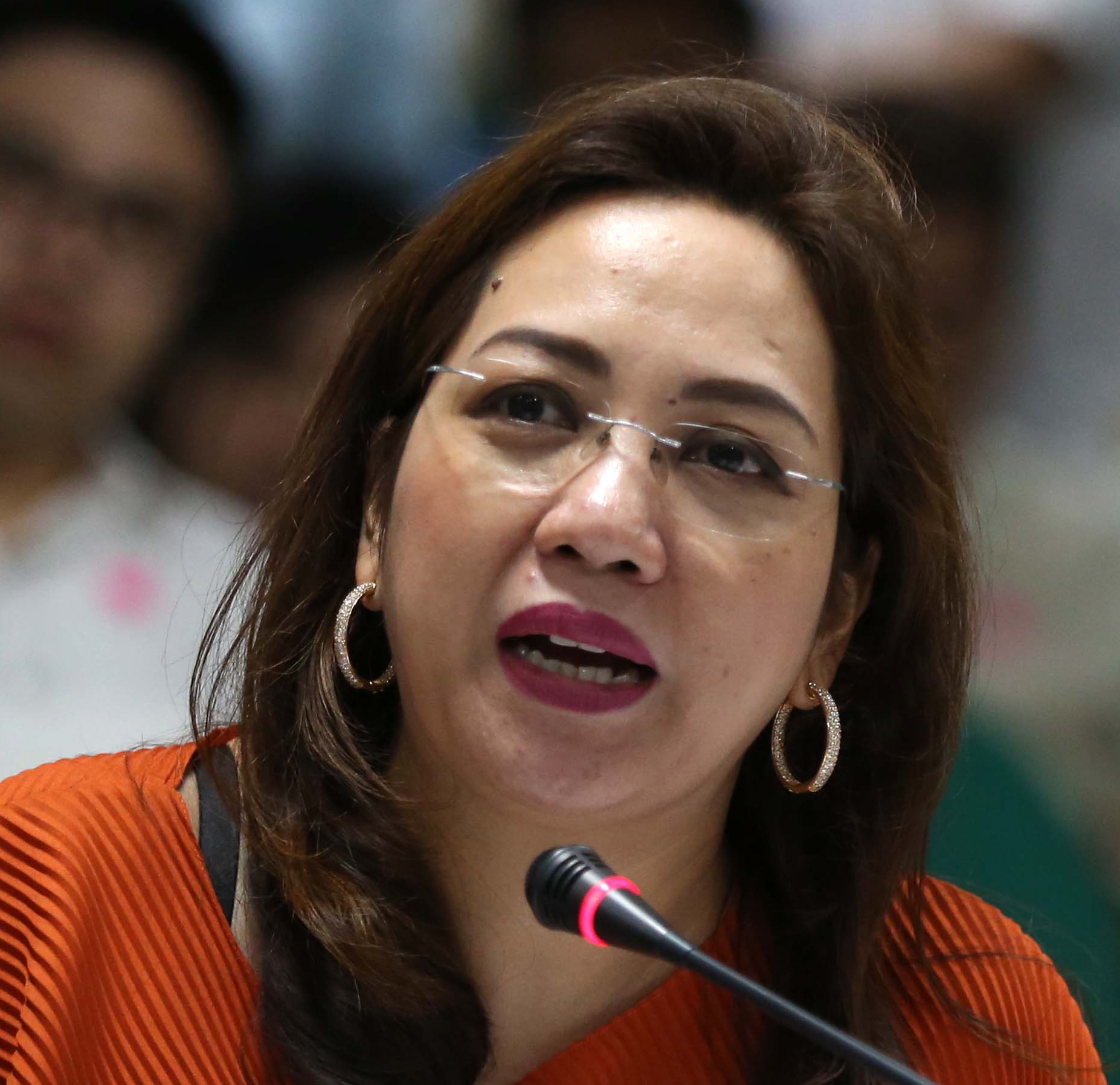Garin: Reemergence of pertussis is due to previous admin’s lapses

Iloilo Rep. Janette Loreto-Garin of Iloilo.INQUIRER FILE PHOTO / LYN RILLON
MANILA, Philippines — The reemergence of pertussis or whooping cough, along with other ailments that are easily preventable through vaccinations, is an offshoot of the past administration’s lapses, former Health secretary and Iloilo 1st District Rep. Janette Garin said on Monday.
In a press briefing at the House of Representatives complex, Garin said people should understand that vaccine hesitancy, or parents’ second thoughts about allowing immunizations for their children, is the reason behind rising pertussis cases.
However, the lawmaker explained that the vaccine hesitancy did not happen overnight, claiming that past Department of Health (DOH) officials — particularly former secretaries Francisco Duque III and Paulyn Ubial — failed to address the circulation of misinformation on vaccines.
“There’s a lot of news about pertussis but maybe we should ask first why it has happened, why is it that in the whole world, only the Philippines registered a pertussis outbreak and why polio made a comeback, why are there people dying of measles. This is all because of vaccine hesitancy,” Garin said in Filipino.
“The huge vaccine hesitancy happened because the Department during the time, the leadership of the [DOH] during that time, the Duque and Ubial legacy led to a strong reduction of vaccination. Why talk about this? People should understand that these incidents during the current administration, is actually an offshoot of some mistakes committed during the previous administration,” she added.
According to Garin, vaccine coverage went down from 98 percent to just around 30 percent, which led to the reemergence of pertussis and other ailments.
“So of course, if you demonize a vaccine and if the fake experts have their way, people would be confused […] From a 98 percent vaccine coverage, this plunged down to around 30 or 32 percent. Included in the lower coverage is for polio, measles, mumps, rubella, and pertussis,” she said.
“If you look at DOH’s stock now, there is none. They need vaccines in the community, but there’s none because health workers and experts are already afraid. Where do we go from here? Then the current administration will be blamed for the lapses of the previous leaders of the [DOH]? I think that is also unfair,” she added.
Last March 21, Quezon City Mayor Joy Belmonte declared a pertussis outbreak as the local government’s Epidemiology and Surveillance Division logged 23 cases since the start of the year up to March 20.
Then earlier, it was reported that in Western Visayas, a 100-percent rise in cases of pertussis was recorded in early March.
DOH said that 453 cases of pertussis were reported in just the first 10 weeks of 2024, a high increase compared to the 27 cases during the same period in 2019, 27 in 2020, seven in 2021, two in 2022, and 23 in 2023.
The entire province of Cavite has been declared a state of calamity due to the rise in whooping cough cases. According to DOH, eight million vaccines will be brought in to deter pertussis and measles outbreaks.
Garin, a physician by profession, explained that pertussis is usually included in the government-offered vaccines, either the DPT (diphtheria, pertussis, tetanus) vaccines or the more modern 5-in-1 or 6-in-1 shots.
“It’s saddening because pertussis is supposed to be a preventable disease. When we did not have the vaccine against Bordetella pertussis, many children die from whooping cough, especially those from one-month old up to six years, because thi is the critical period for children, their immunity is not yet mature,” she said.
“Now, because we have vaccines included in the DPT — diphtheria, pertussis, tetanus — that’s three doses, or sometimes included in the 5-in-1, 6-in-1 […] that’s given as three doses because they are expected to contract pertussis if they lack vaccinations. But if you are vaccinated and you contract the disease, you can fight it off and it’s not lethal. Unfortunately we now have a vaccine scare,” she added.
Garin has been critical of misinformation regarding vaccines’ efficacy, especially during the time of the COVID-19 pandemic.
Several health experts have attributed the low vaccine confidence among Filipinos to the anti-dengue vaccines, where individuals inoculated with Sanofi Pasteur’s Dengvaxia allegedly experienced worse symptoms when they contracted dengue. Some even claimed that vaccinated patients died after getting infected with dengue, leading to lawsuits against Department of Health (DOH) officials.
DOH previously admitted that the measles outbreaks recorded in the past few years were due to low vaccine confidence brought by Dengvaxia.
READ: Dengvaxia scare a factor in measles outbreak—DOH
Garin, who was DOH chief when the Dengvaxia vaccines were distributed, maintained that the vaccines were safe and have been proven effective, noting that other countries who used the same exact vials did not encounter problems raised by the Public Attorney’s Office.